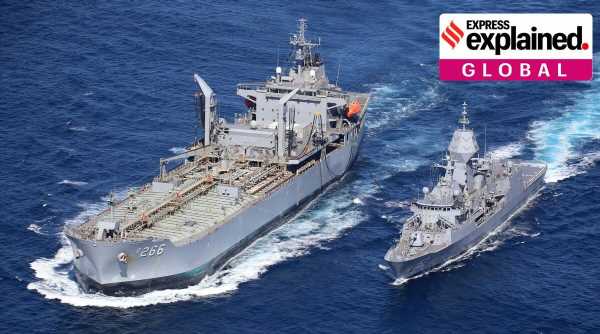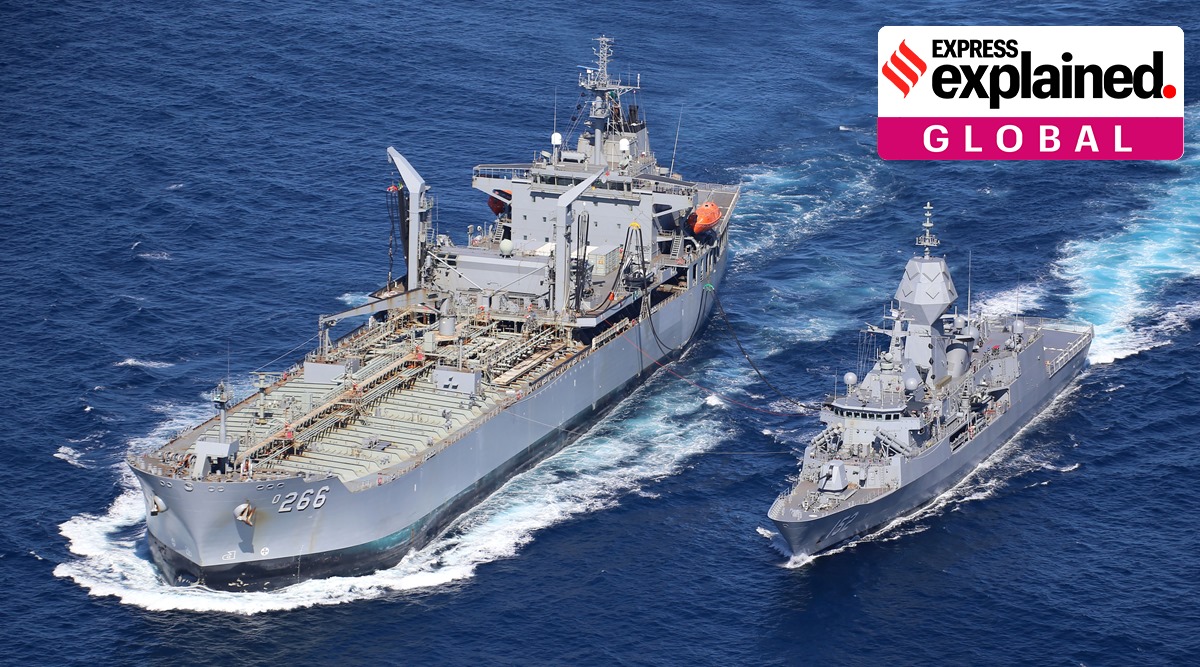Foreign vessels, both military and commercial, will be henceforth required to submit to Chinese supervision in “Chinese territorial waters,” as per the new law.
From Sept.1, China’s new maritime rules designed to control the entry of foreign vessels in what Beijing calls “Chinese territorial waters” take effect. The move is expected to have far-reaching consequences for passage of vessels, both commercial and military, in the disputed South China Sea, East China Sea and Taiwan Strait, and is likely to escalate the existing tension with the US and its neighbours in the region.
What is the new law?
Foreign vessels, both military and commercial, will be henceforth required to submit to Chinese supervision in “Chinese territorial waters,” as per the new law. The state-run Global Times, quoting the country’s Maritime Safety Administration, said that “operators of submersibles, nuclear vessels, ships carrying radioactive materials and ships carrying bulk oil, chemicals, liquefied gas and other toxic and harmful substances are required to report their detailed information upon their visits to Chinese territorial waters”.
The report goes on to add that vessels that “endanger the maritime traffic safety of China” will be required to report their name, call sign, current position and next port of call and estimated time of arrival. The name of shipborne dangerous goods and cargo deadweight will also be required.
Dr. Monika Chansoria, Senior Fellow at the Japan Institute of International Affairs (JIIA) in Tokyo and who specialises in contemporary Asian security and Indo-Pacific strategy, termed the move as a follow-up to a series of decisions that have raised the ante in the East China Sea and the South China Sea since 2020.
Referring to the February 2021 law that authorised the Chinese Coast Guard to use weapons on foreign vessels and to demolish economic structures in disputed areas, Dr. Chansoria said the country’s coast guard is now a “quasi-military organisation falling under the PLA’s [People’s Liberation Army] chain of command”.
“All these pronouncements are very alarming, as they heighten the risk of a possible miscalculation, which can threaten the overall stability and security in the South China Sea, East China Sea, and across the Taiwan Strait,” Dr Chansoria told The Indian Express in an email interview.
Why is this important?
The South China Sea, which lies between China, Taiwan, the Philippines, Brunei, Malaysia, Indonesia and Vietnam, is of great economic importance globally. Nearly one-third of the world’s shipping passes through its lanes, and the waters house numerous important fisheries.
Newsletter | Click to get the day’s best explainers in your inbox
It is also a critical route for India, both militarily and commercially. The South China Sea plays a vital role in facilitating India’s trade with Japan, South Korea and ASEAN countries, and assists in the efficient procurement of energy supplies. In fact, the Ministry of External Affairs estimates that more than 55% of India’s trade passes through the South China Sea and Malacca Straits. India is also involved in oil and gas exploration in offshore blocks in the margins of the Sea, which has led to standoffs with Chinese authorities.
The waters around China are hotly contested. Under a “nine-dash line” map, China claims most of the South China Sea as its sovereign territory. This claim is contested by its neighbours in the region and by the United States, which, though it has no claim in the Sea, backs the smaller nations in the fight against Chinese overreach. The two countries recently sparred over the issue at a UN meeting on maritime security, with US saying that it has seen “provocative actions to advance unlawful maritime claims” and China retorting that the US has been “arbitrarily sending advanced military vessels and aircraft into the South China Sea as provocations”.
International position
Currently, international maritime activities are governed by an international agreement called the United Nations Convention on the Law of the Sea (UNCLOS) of which China, India and over a hundred other countries are signatories (the US, significantly, is not). Accordingly, states have the right to implement territorial rights up to 12 nautical miles into the sea. The UNCLOS also states that all vessels have the right of “innocent passage” through this region – China’s new law violates this.
As the law comes into effect, several questions remain. For one, it is unclear how China intends to implement the regulation. The US, which routinely holds naval exercises in the region, is unlikely to abide by Beijing’s law. It also remains to be seen how the rest of the UNCLOS signatories react to this challenge to the agreement.
Source: Read Full Article


